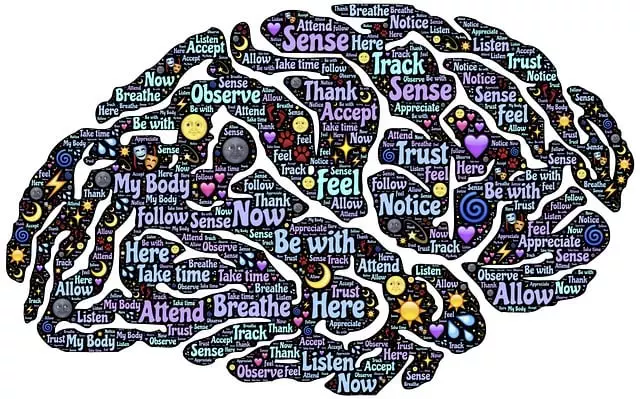Crisis Intervention Teams (CITs) are vital for immediate mental health support, especially in high-risk situations. Kaiser Permanente Norcal and Denver offer transformative CIT training, emphasizing empathy, cultural sensitivity, and practical skills. Their programs reduce crisis burden and promote well-being, with dedicated mental health phone numbers accessible to residents. Specialized training enhances professionals' crisis intervention abilities, ensuring effective support via hotlines or community outreach.
In today’s challenging landscape, effective crisis intervention teams (CITs) are a vital resource for providing immediate, skilled support during mental health crises. Organizations like Kaiser Permanente play a crucial role in equipping frontline professionals with the necessary tools. This article explores CIT training programs, focusing on Kaiser Permanente’s Norcal and Denver initiatives. We’ll delve into the essential skills taught and provide a guide for mental health professionals to access these life-saving resources, highlighting the significance of numbers like Kaiser Permanente’s mental health phone number.
- Understanding Crisis Intervention Teams: A Vital Resource for Mental Health Support
- Kaiser Permanente's Approach to Training: Norcal and Denver Programs
- Essential Skills Taught in Crisis Intervention Team Training
- Accessing and Benefiting from these Programs: A Guide for Mental Health Professionals
Understanding Crisis Intervention Teams: A Vital Resource for Mental Health Support

Crisis Intervention Teams (CITs) are a vital resource in providing immediate and effective mental health support, especially during moments of crisis. These specialized teams typically consist of trained professionals from various disciplines, including mental health experts, law enforcement officers, and emergency medical personnel. Their primary goal is to de-escalate high-risk situations involving individuals experiencing severe mental illness or emotional distress.
The need for CITs has become increasingly prominent, given the rising rates of mental illness and the often complex interplay between mental health challenges and public safety. Organizations like Kaiser Permanente Norcal in Denver recognize the importance of these teams in reducing the stigma associated with mental illness. By integrating Mind Over Matter principles into their training programs, CIT members learn to approach situations with empathy and cultural sensitivity, ensuring that risk management planning for mental health professionals is not just a theoretical concept but a practical skill set used to save lives.
Kaiser Permanente's Approach to Training: Norcal and Denver Programs

Kaiser Permanente, a leading healthcare organization, has implemented innovative training programs to address mental health crises effectively. Two notable initiatives are the Norcal and Denver programs, which focus on empowering healthcare providers with specialized skills. The Norcal program emphasizes community outreach, ensuring that mental health support is accessible to diverse populations across Northern California. Through interactive workshops, participants learn stress management techniques tailored for various cultural contexts, enhancing their ability to connect with at-risk individuals.
Similarly, the Denver program takes a holistic approach, combining in-depth training with real-world practice. It includes comprehensive sessions on cultural competency, enabling healthcare providers to offer sensitive and effective care to all patients, regardless of their background. By fostering an environment where mental health discussions are open and accessible, these programs aim to reduce the burden of crisis interventions while promoting long-term well-being within communities, with the support of Kaiser Permanente’s dedicated mental health phone number (1-800-473-2229) for Norcal and Denver residents in need.
Essential Skills Taught in Crisis Intervention Team Training

Crisis intervention team training programs equip individuals with a range of essential skills to handle and de-escalate crises effectively. These include active listening, empathy, and clear communication, which form the foundation for building rapport and trust with individuals in distress. Participants learn to recognize signs of mental illness and emotional distress, crucial for identifying those who may be at risk without apparent outward cues.
Through realistic scenarios and role-playing exercises, trainees gain proficiency in crisis de-escalation techniques, including defusing high-stress situations, providing emotional support, and offering practical solutions. Additionally, programs often incorporate mental wellness journaling exercises to encourage self-reflection and personal growth. The focus on Mental Illness Stigma Reduction Efforts is paramount, fostering an environment of understanding and compassion towards individuals facing mental health challenges. Moreover, training includes Risk Assessment for Mental Health Professionals, ensuring practitioners can identify potential risks and implement appropriate interventions.
Accessing and Benefiting from these Programs: A Guide for Mental Health Professionals

Mental health professionals play a vital role in crisis intervention, and accessing specialized training programs can significantly enhance their capabilities. These initiatives, often offered by renowned organizations like Kaiser Permanente Norcal or Denver’s trauma support services, provide an opportunity for professionals to gain valuable skills.
The process typically involves enrolling in comprehensive courses that cover various aspects of crisis management, including social skills training and confidence-boosting techniques. By participating in these programs, practitioners can learn effective strategies to support individuals facing mental health crises. Whether it’s through phone hotline services or community outreach, professionals equipped with such training are better prepared to offer immediate assistance and long-term care coordination.
Crisis intervention team (CIT) training programs, such as those offered by Kaiser Permanente in Norcal and Denver, are invaluable resources for enhancing mental health support. By equipping professionals with essential skills, these programs foster better crisis management and improved patient outcomes. For those seeking expert guidance, accessing these initiatives is straightforward, whether through the dedicated Kaiser Permanente mental health phone number or local CIT training centers. Embracing CIT training represents a crucial step toward creating a more responsive and compassionate mental healthcare landscape.






